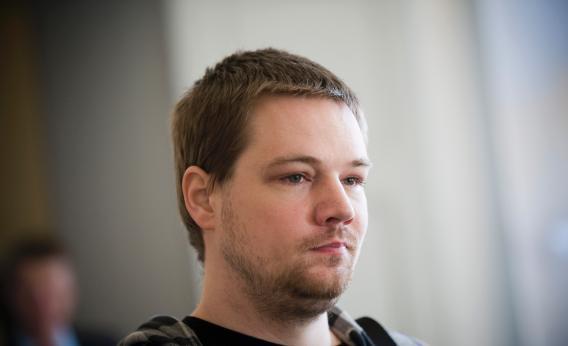In 2009 Fredrik Neij, a co-founder of the file-sharing site the Pirate Bay, and three co-defendants were found guilty by a Swedish court of being accessories to copyright violation. Neij was sentenced to a year, which was later reduced to 10 months. He appealed to the Swedish Supreme Court, but in February, it was announced that the court would not hear his case.
So now Neij wants to head to the European Court of Justice.
On Monday, Neij’s attorney Jonas Nilsson wrote in the Swedish newspaper Dagens Nyheter that the Pirate Bay’s structure means that individual users, not the site’s creators, should be held accountable for copyright infringement and other crimes. “It’s like penalizing the post office for delivering mail that contains illegal content,” he writes. As to why they are appealing to the European Court of Justice, Nilsson says:
Article 10 of the European Convention on Human Rights is concise but clear: “Everyone has the right to freedom of expression. This right shall include freedom to hold opinions and to receive and impart information and ideas without interference by public authority and regardless of frontiers.” The service provided by The Pirate Bay—to transfer non-proprietary information among users through an automated process on the Internet—should therefore be protected under that article.
It is probably worth mentioning that Article 10 further states, “The exercise of these freedoms, since it carries with it duties and responsibilities, may be subject to such formalities, conditions, restrictions or penalties as are prescribed by law and are necessary in a democratic society.” Listed justifications for restrictions include “the prevention of disorder or crime,” among others.
TechDirt’s Mike Masnick says that courts tend not to buy the argument that the Pirate Bay shouldn’t be responsible because users are the ones exchanging illegal content—“(especially) when the operators of the site were quick to mock those who challenged how much of the usage was infringing.” Masnick also speculates that taking the case to the European Court of Justice could end up hurting other sites that attempt to use the same defense in the future.
But Web Pro News’ Zach Walton hopes the court takes up the appeal, because otherwise, “we might be stuck with a world where corporations, not governments, make the laws deciding what constitutes as piracy.”
In other Pirate Bay news, one of Neij’s co-defendants, Peter Sunde, has recently requested a pardon, and the site has also been hit by a distributed denial-of-service attack.
Thanks to Kristine Bergström for translating quotes from the Dagens Nyheter piece from the original Swedish.
